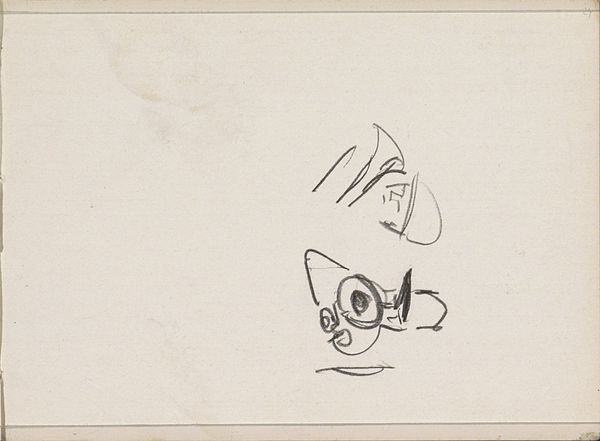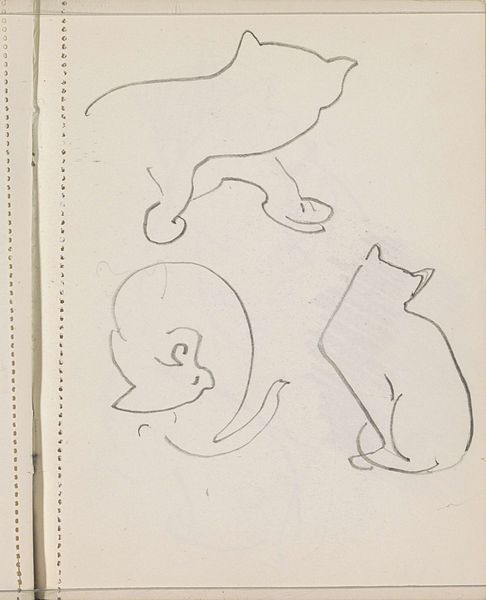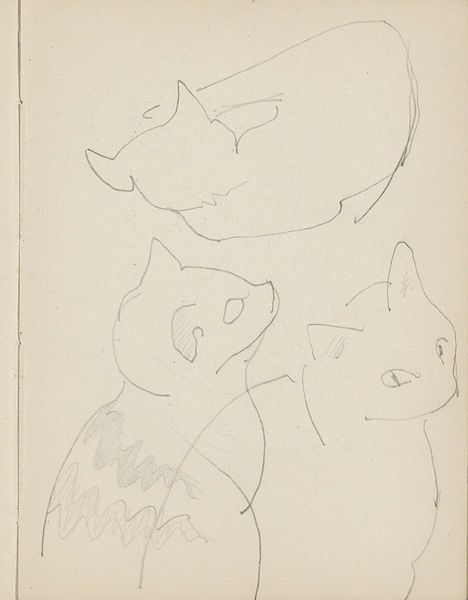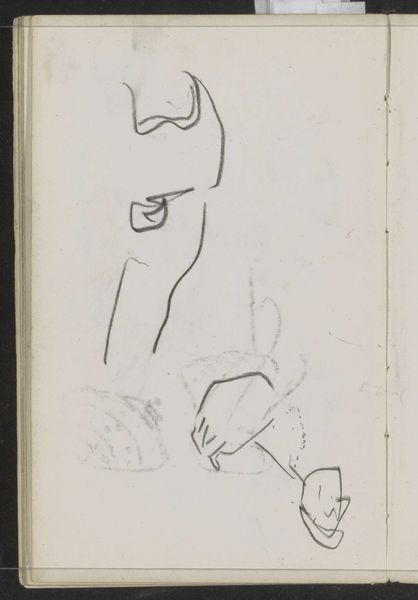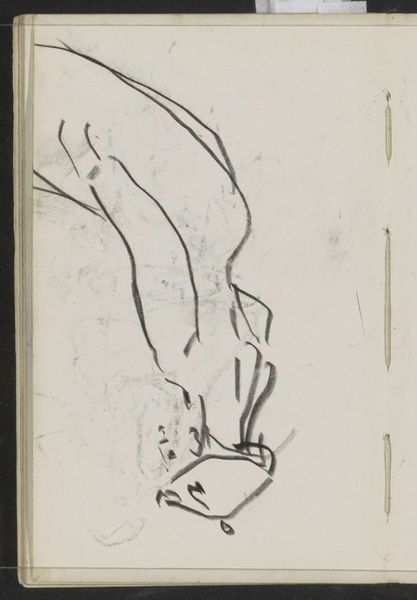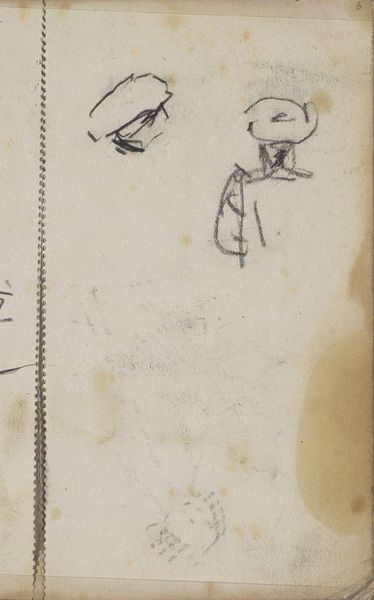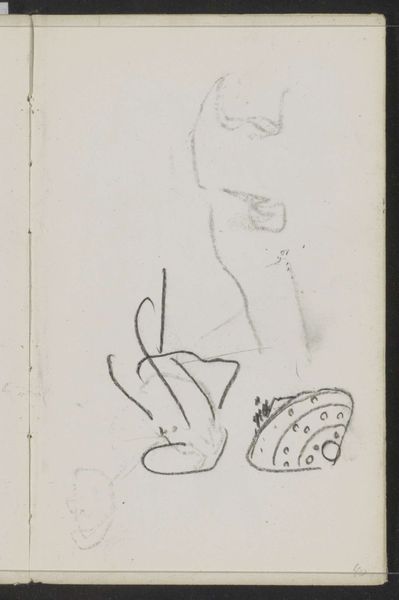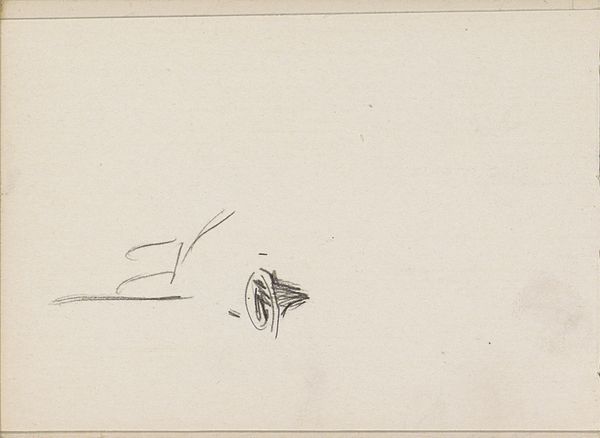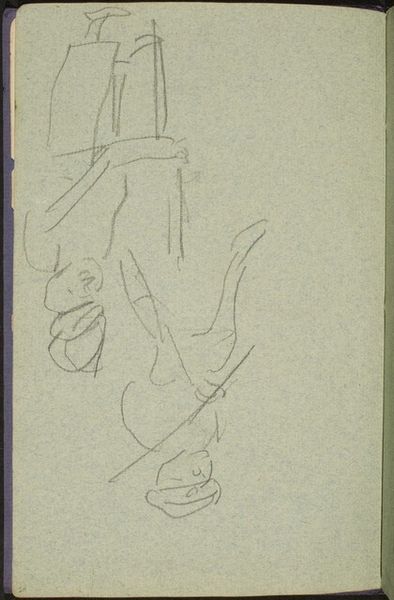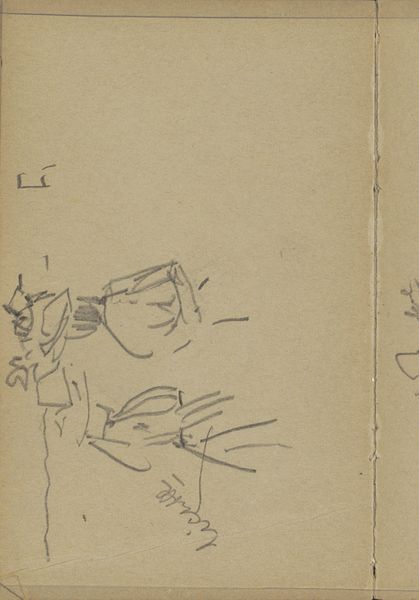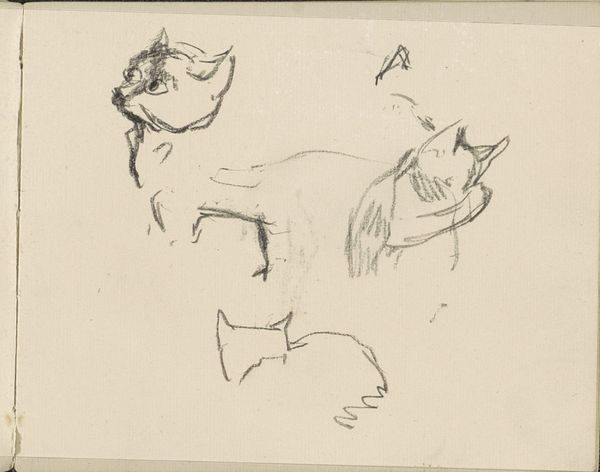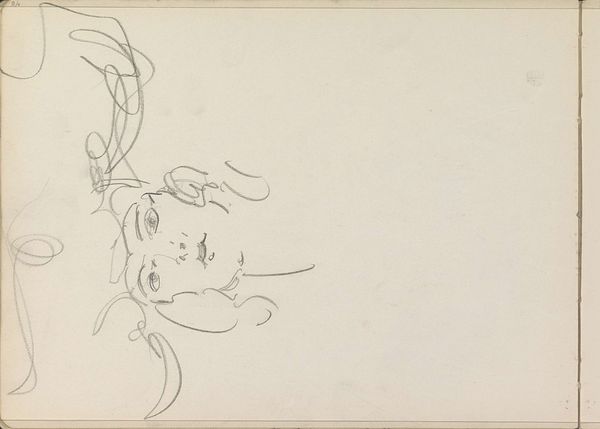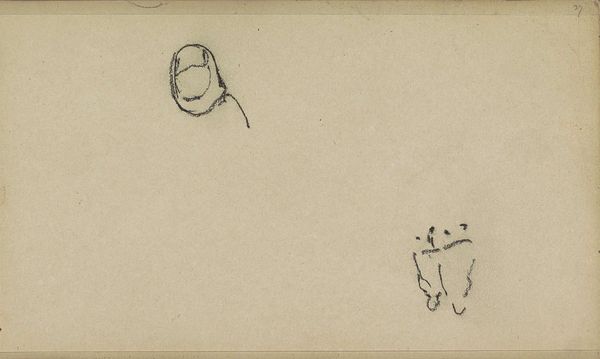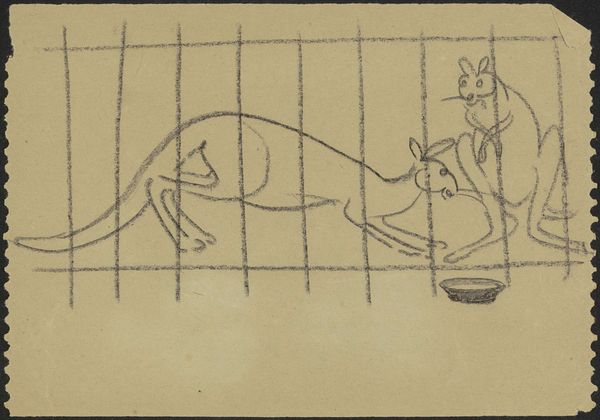
drawing, paper, ink
#
portrait
#
drawing
#
imaginative character sketch
#
quirky sketch
#
animal
#
hand drawn type
#
figuration
#
paper
#
personal sketchbook
#
ink
#
idea generation sketch
#
sketchwork
#
character sketch
#
line
#
sketchbook drawing
#
sketchbook art
#
initial sketch
Copyright: Rijks Museum: Open Domain
Curator: This charming ink drawing, simply titled "Koppen van twee katten," or "Heads of Two Cats," comes to us from the hand of Gerrit Willem Dijsselhof, around 1901. It currently resides here at the Rijksmuseum. Editor: They’re quite endearing. Rudimentary, but full of character! You can almost feel the scratch of the pen nib on the paper, the rapid creation of these feline portraits. Curator: Indeed. Dijsselhof, deeply involved in the Dutch Arts and Crafts movement, often incorporated animal motifs into his designs. One might see this drawing as preliminary, a kind of cataloging of forms before deploying them into applied works. Editor: It certainly seems like a sketchbook page. And I’m interested in the way the starkness of the ink on paper speaks to a practicality, almost utilitarian. Was drawing materials something that would have been precious to him? Curator: Well, consider the wider cultural fascination with cats at the turn of the century. They featured prominently in advertising, decorative arts. Perhaps these sketches were driven as much by market demand as personal whim. There was a certain idealization of the domestic space at the time too, and what better embodiment of that than a cat? Editor: That’s a fair point. It also makes me think about the tools involved. The type of ink, the quality of the paper—were these mass-produced, widely accessible materials or something more specialized that was tied to Dijsselhof's creative practice? Curator: That's difficult to ascertain from the work itself. However, his deep connection with artisanal practices suggests he would have valued the quality and origin of his materials. Think about the wider Arts and Crafts ethos—a reaction against industrialization. Editor: It makes you wonder how that ethos also influenced his patronage. Would the public consuming his applied designs be more or less aware of his commitment to a sustainable artistic practice, I wonder? Curator: That awareness undoubtedly factored into the overall appreciation and value placed on his creations by certain audiences. Thank you for bringing that material consciousness to this delightful sketch. Editor: The pleasure was all mine!
Comments
No comments
Be the first to comment and join the conversation on the ultimate creative platform.
